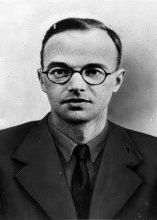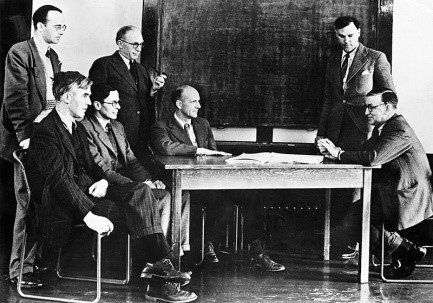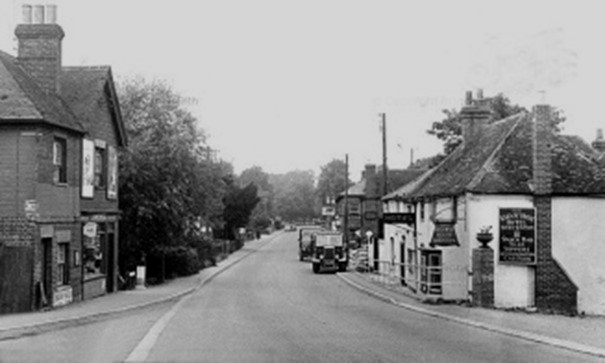Klaus Fuchs was the atomic spy credited with one of the greatest acts of treachery in British history. His espionage, from 1941 when he was working on the Manhattan Project in the USA, to his confession in 1950, resulted in the Russians building their own Atomic bomb.
Fuchs was an anti-Nazi German refugee who studied at Bristol. He worked with Rudolf Peierls, initially at the UK Ministry of Aircraft Production, his speciality being refining uranium for the development of an atomic bomb. In 1944, they both joined the Manhattan Project in Los Alamos, New Mexico. It is believed that Stalin knew about the Trinity Test (the first nuclear detonation) before President Truman did! Whilst still at Los Alamos, Fuchs started work on Hydrogen Bomb. After the war ended, he was reassigned to the UK Atomic Energy Project in Harwell. By 1949, he had passed on enough intelligence to the Russians to enable them to have a detailed understanding of British and American progress on nuclear weaponry.


